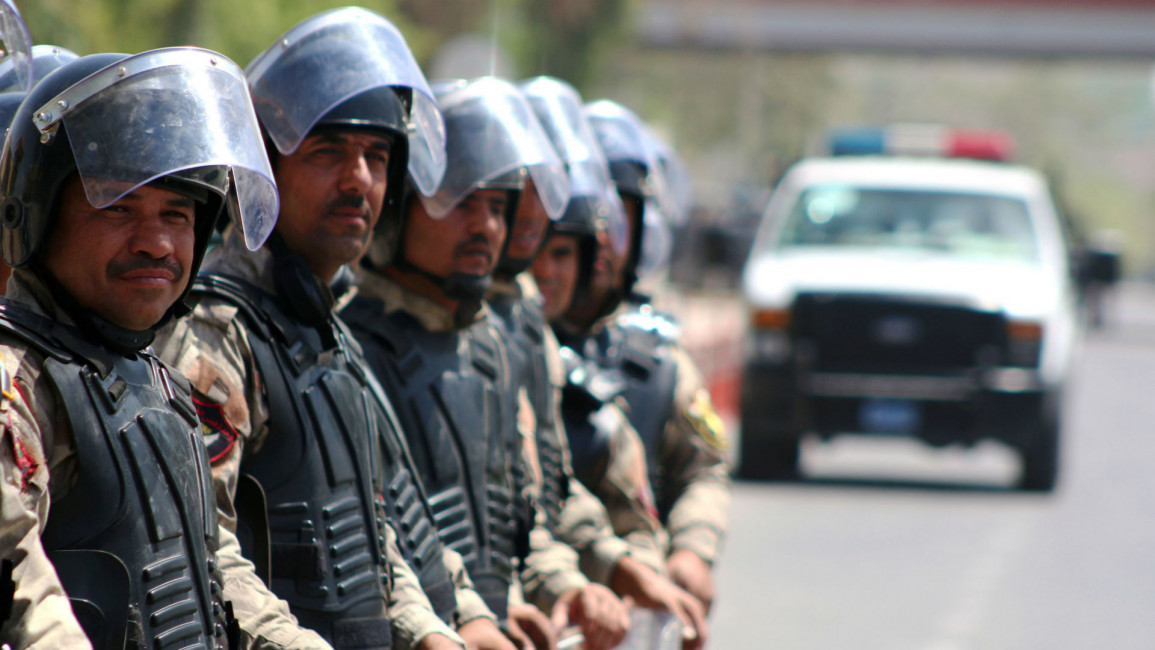Iraqi forces seizes explosives cache near border with Kuwait
Iraqi security forces say the have seized a large cache of explosives and weapons near the border with Kuwait, a senior official said on Monday.
The arms, found in an underground cellar, allegedly belong to an armed militia close to the former Iraqi prime minister, Nuri al-Maliki.
"A joint unit from the intelligence services and bomb disposal crews carried out a surprise raid in collaboration with the Basra police based on reliable intelligence," the Iraqi colonel told al-Araby al-Jadeed. "The unit found large quantities of explosives and light-to-medium weapons, in addition to grenades and explosive devices, mostly homemade."
The colonel said that the weapons were being used by the militia to create chaos, engage in criminal activities, and manipulate political factions, in addition to carrying out sectarian acts.
The name of the militia was not revealed by the colonel, but many in Basra believe it to be the 'al-Asaib' militia.
Communication devices and documents were found in the cellar displaying the name of the militia, which is active in southern Iraq and known to engage in robberies and kidnappings to raise funds.
The news comes days after a one man was killed, and three others injured, in a protest demanding better services in Basra, but also believed by some to have been encouraged by Maliki.
"The recent protests in the province against the power cuts express a legitimate cause, but one that has ulterior motives," said Hussam al-Murshidi, a member of the National Coalition bloc in Basra. "The supporters of the former prime minister Nuri al-Maliki are attempting to undermine the Abadi government and get a minister sacked to weaken and topple the government."
Murshidi claimed that the protesters are linked to the militias in the province, which he said were trying to inflame the situation and cause assaults on the protesters in order to intervene and destabilise Basra.
Murshidi's comments were echoed by Iraq's deputy prime minister Bahaa al-Araji, who said that the "violence" that accompanied the protests in Basra was deliberate, stressing to reporters that Basra needed to be "demilitarised".
This was rejected by the head of the Shia Islamist Badr Organisation in Basra, Hussein al-Rashid, who called on the local authorities to refrain from using bullets to respond to the demands of protesters.



